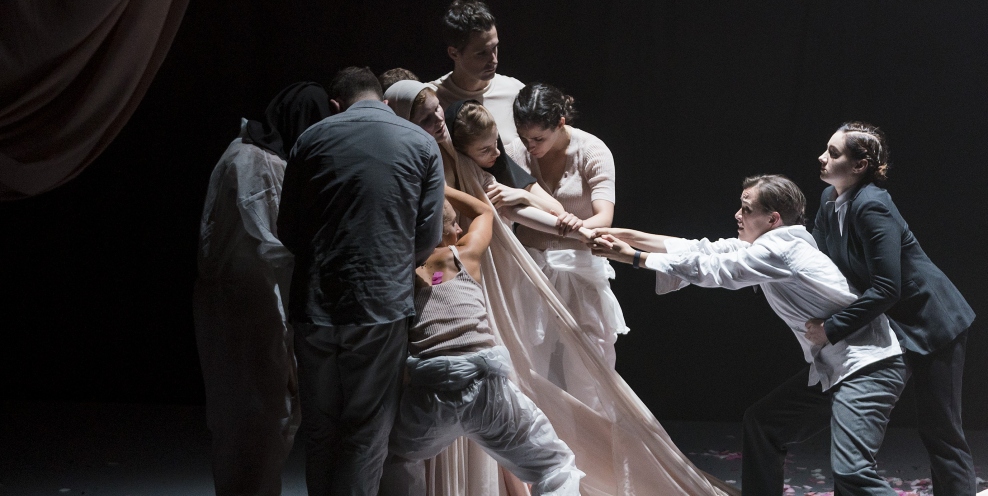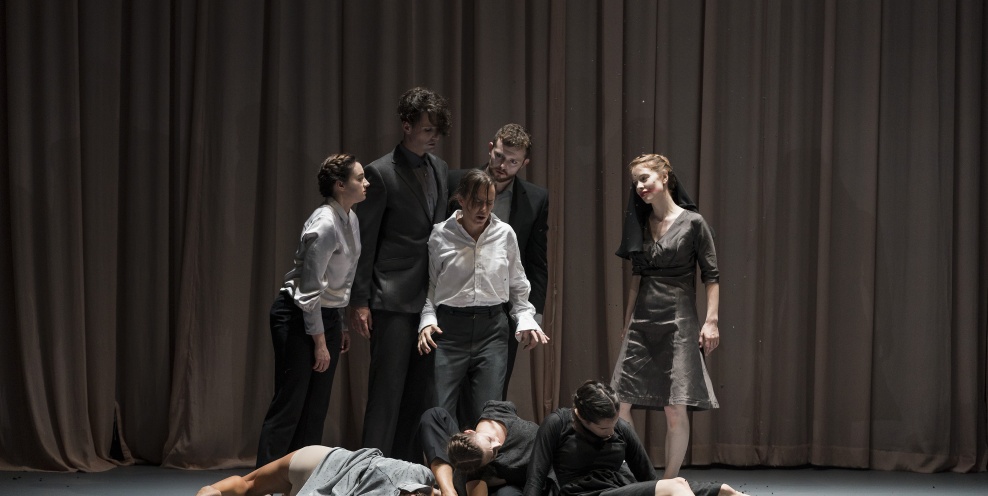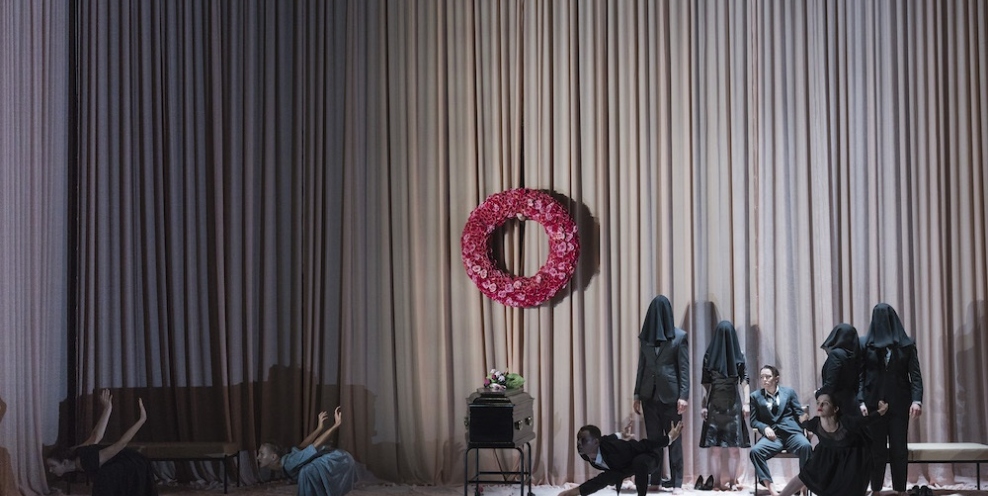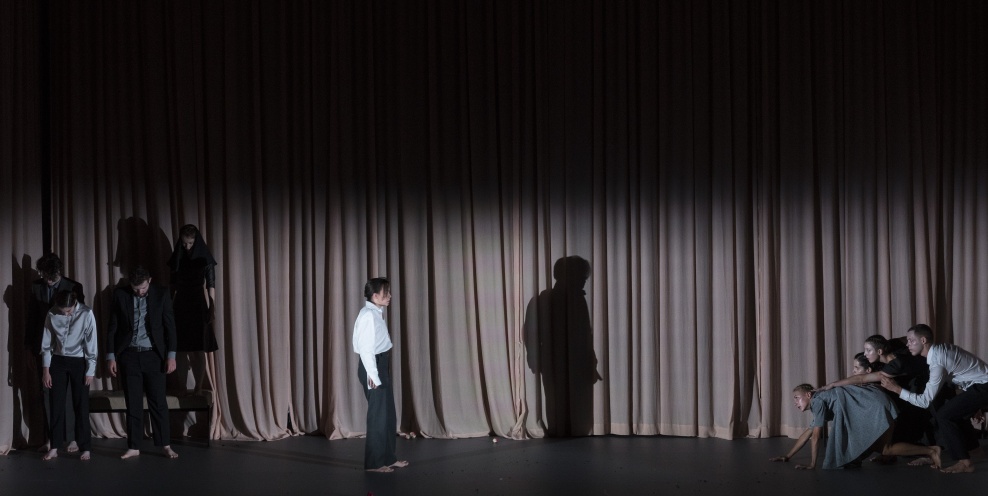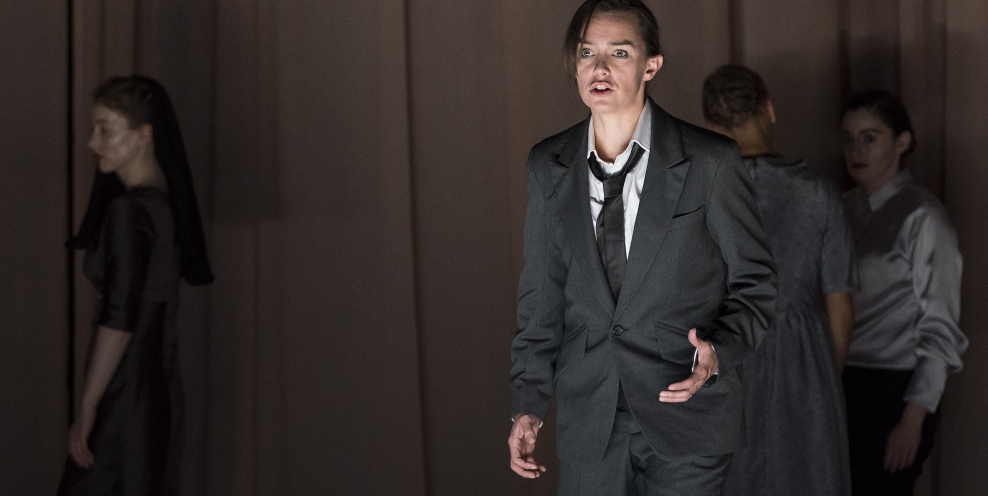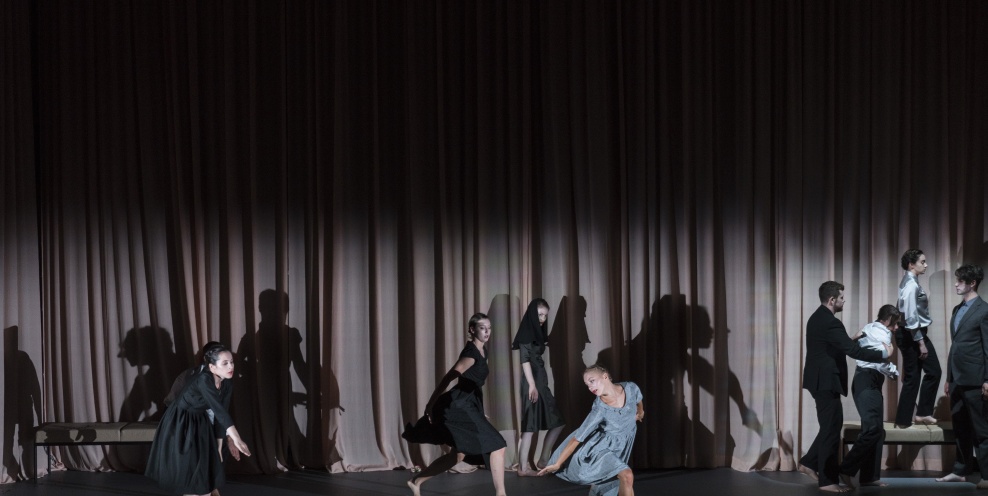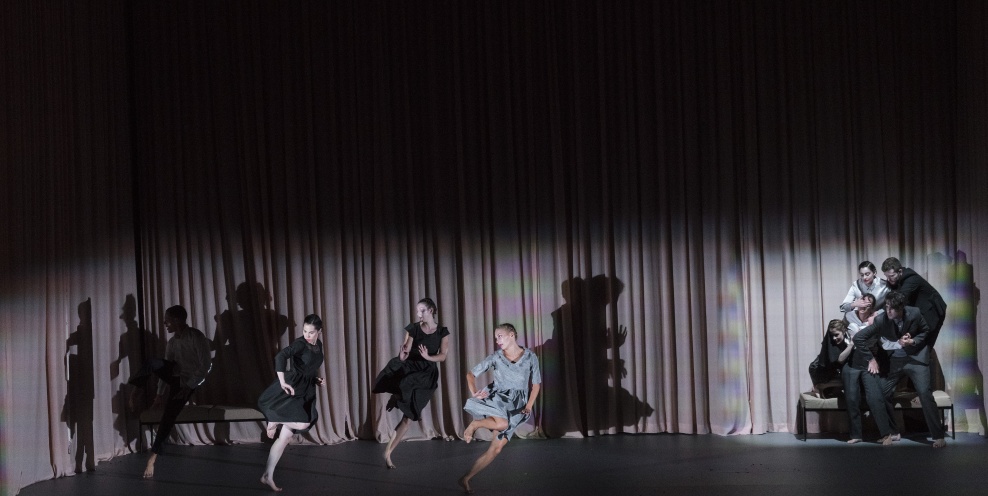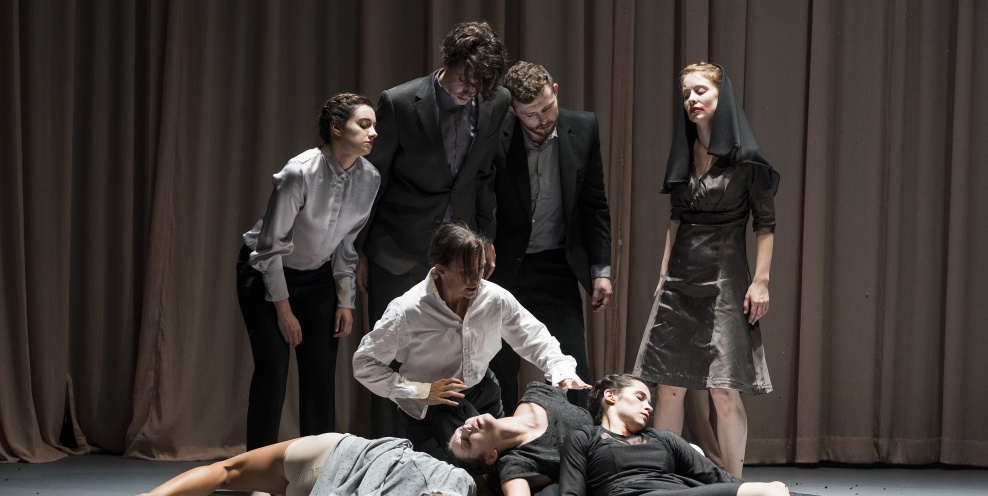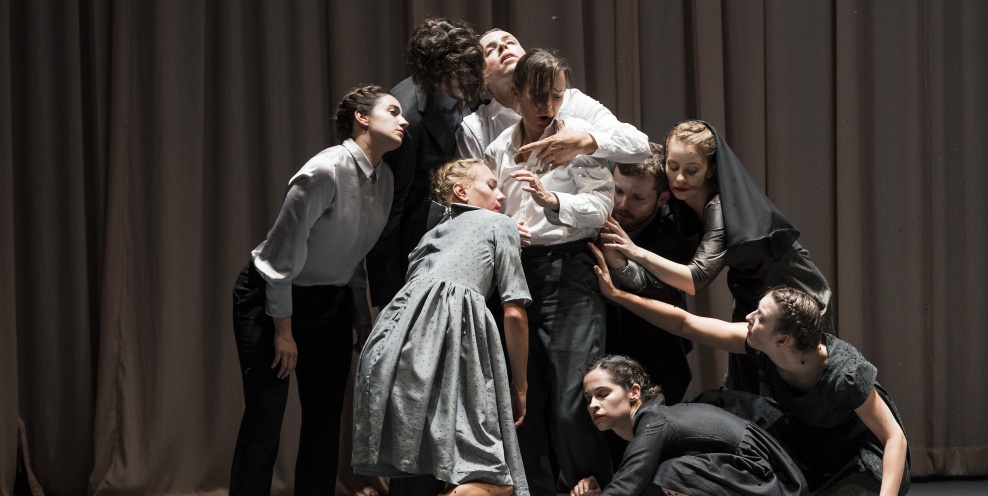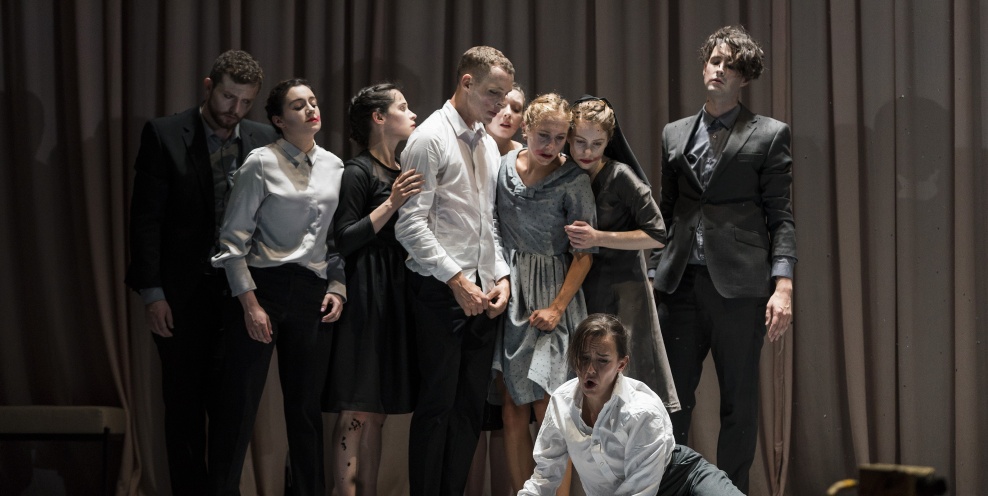Dates & Venues
| Thursday 7 February 8pm |
Thursday 7 February 8pm
Tallaght
Civic Theatre
|
|
| Friday 8 February 8pm |
Friday 8 February 8pm
Tallaght
Civic Theatre
|
|
| Sunday 10 February CONCERT PERFORMANCE 7.30pm |
Sunday 10 February CONCERT PERFORMANCE 7.30pm
Drogheda
St. Peter's Church of Ireland
|
|
| Tuesday 12 February 8pm |
Tuesday 12 February 8pm
Bray
Mermaid Arts Centre
|
|
| Thursday 14 February 8pm |
Thursday 14 February 8pm
Waterford
Theatre Royal
|
|
| Saturday 16 February 8pm |
Saturday 16 February 8pm
Carlow
VISUAL Theatre
|
|
| Sunday 17 February CONCERT PERFORMANCE 3pm |
Sunday 17 February CONCERT PERFORMANCE 3pm
Celbridge
Castletown House
|
|
| Tuesday 19 February 8pm |
Tuesday 19 February 8pm
Cork
Everyman
|
|
| Thursday 21 February 8pm |
Thursday 21 February 8pm
Ennis
Glór
|
|
| Saturday 23 February 8pm |
Saturday 23 February 8pm
Tralee
Siamsa Tíre
|
|
| Wednesday 27 February 7.30pm |
Wednesday 27 February 7.30pm
Dún Laoghaire
Pavilion Theatre
|
|
| Thursday 28 February 7.30pm |
Thursday 28 February 7.30pm
Dún Laoghaire
Pavilion Theatre
|
|
| Saturday 2 March 8pm |
Saturday 2 March 8pm
Wexford
National Opera House
|
Orfeo ed Euridice
Sung in Italian with English surtitles
Duration: 85 mins (no interval)
Pre-opera talks available at some venues.
“the show belongs to Carty who sings Orfeo with a deep and commanding grief. Wish that we might all be mourned so.” - Irish Independent
The great musical myth. Orpheus rescues his wife Euridice from the Underworld. A revolutionary new mix of words, singing and dancing. And Gluck's creative pursuit of beautiful simplicity and dramatic truth.
“I read and re-read Gluck's scores. I copied them and learnt them by heart. I went without sleep because of them and forgot to eat or drink. An ecstasy possessed me.” - Hector Berlioz, Composer
“The reason Orfeo or anyone else starts the journey is Love. It is the only power which can bring us safely through.” - Janet Baker, Mezzo-Soprano
Mezzo soprano Sharon Carty’s performance in the title role is “compelling, both vocally and dramatically” (Goldenplec). She is “well matched by Sarah Power’s mysterious Euridice” (Sunday Independent). Emma Nash is a “powerfully soaring Amore” (Sunday Independent), and the production also features an ensemble of four singers and four United Fall dancers who “gave the opera an added dimension” (Journal of Music)
A CO-PRODUCTION WITH UNITED FALL
IN PARTNERSHIP WITH IRISH BAROQUE ORCHESTRA
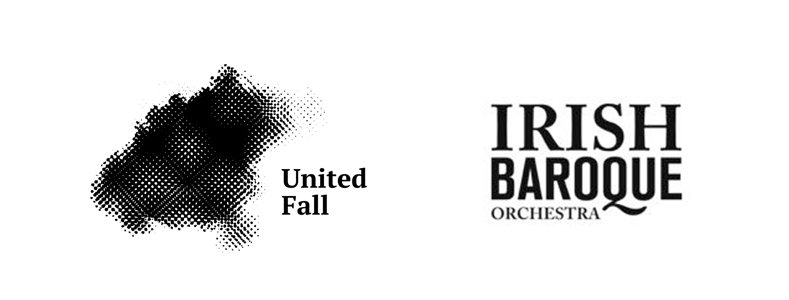
Cast & Creative Team
Cast
| Orfeo | Sharon Carty |
| Euridice | Sarah Power |
| Amore | Emma Nash |
Chorus
| Soprano | Emma Nash |
| Mezzo soprano | Dominica Williams |
| Tenor | Fearghal Curtis |
| Bass | Matthew Mannion |
United Fall Dancers
| Robyn Byrne |
| Stephanie Dufresne |
| Javier Ferrer |
| Sophia Preidel |
Creative Team
| Conductor | Peter Whelan |
| Director | Emma Martin |
| Assistant Director | Emmanuel Obeya |
| Set Designer | Sabine Dargent |
| Costume Designer | Catherine Fay |
| Lighting Designer | Stephen Dodd |
| Irish Baroque Orchestra |
Synopsis
Act I
Orfeo, a poet and musician who can enchant wild beasts and move trees and rocks through his music, is mourning the death of his wife Euridice, who died from a snake bite. It’s as much as Orfeo can manage to utter her name as a group of mourners lament her passing. He wants to be alone with his sorrow. Orfeo resolves to claim his departed wife back from the gods.
Amore, the God of Love, appears and offers support, explaining that one of the Gods, Jove, has taken pity on Orfeo. He will be allowed into the underworld if he can appease the “furies, monsters and cruel death” with the power of his singing. There he will meet Euridice and be permitted to bring her back to the upper world. The catch is that they must make this journey without Orfeo looking at her and without explaining the prohibition that has been imposed on him. Otherwise he will lose her again. His blood freezes at the thought of her impatience and his own anguish. But he accepts the challenge.
Act II
A forbidding netherworld closes in around Orfeo who plays his lyre whilst the Furies mill around him, frightening him and interrupting his music.
A chorus of furies and spectres threaten and obstruct Orfeo as he begins his journey. The sound of his lyre, represented by the harp, and the calm of his voice contrast with the violence of the music which challenges him. The furies take pity on him and eventually allow him to pass.
Orfeo finds himself in the Elysian Fields, a paradise where he believes everyone is in peace except himself, bereft of his beloved Euridice. The chorus announces her arrival and leads Orfeo to her. Without Orfeo ever looking back they finally connect with each other once again.
Act III
Orfeo leads Euridice as he grapples with explanations for questions he cannot fully answer without breaching his bargain. The more he hears the less he can resist, as she longs for “but one single look”. They both endure extended, incomprehensible torture until he finally yields. He looks at her and loses her again and forever. The horror of this drives him to despair and sparks the opera’s most celebrated aria, Che farò senza Euridice? (What shall I do without Euridice?), as he contemplates life without the wife he has lost twice over.
Gluck’s opera follows the operatic convention of the day by adding a happy ending where the lovers are reunited in life. Irish National Opera's production takes its inspiration from the original Greek myth which has a more powerful tragic conclusion. A final joyful celebration of the power of love is offered as a postscript.
